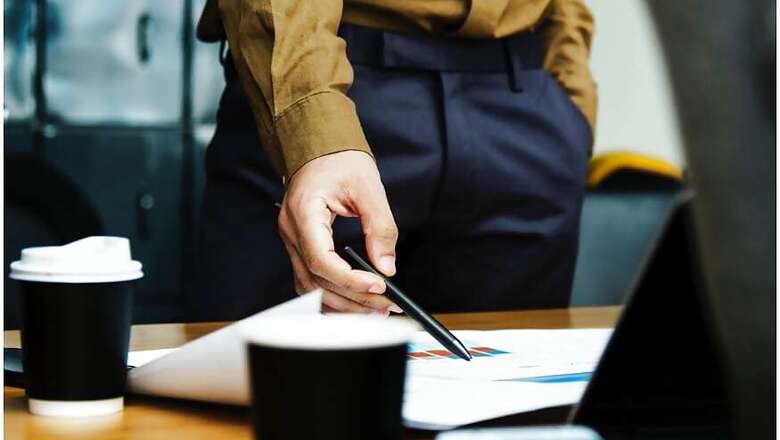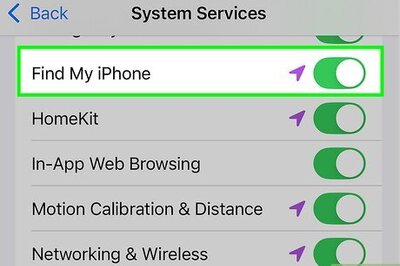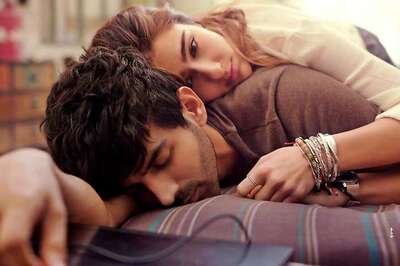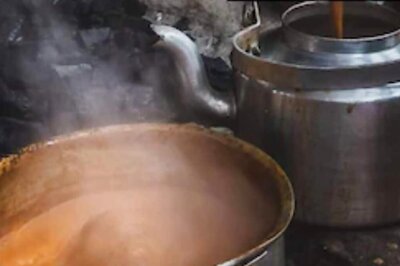
views
It is not known how many noticed the recent acid attack on disabled soldiers – although some did. For the first time in the history of the country, a few disabled soldiers received the princely sum of Rs 100 as monthly pension; that it was not Re 1 is a wonder.
Banks implemented the government’s decision from last year to do away with exemption of IT for disabled soldiers who had continued serving. The norm to recover arrears is that not more than one-third is recovered in a month from the salary or the pension. But in the instant case, the plan obviously was to continue paying Rs 100 in monthly salary until the recovery of full arrears. This, despite most disabled soldiers surviving on pension – throwing acid on the wounds. And it was done despite the issue being sub-judice in court.
Faced with possible action of contempt of court and uproar in the media, the MoD asked the PCDA to withdraw the circular mandating Tax Deducted at Source (TDS) on disability. But it was the MoD in the first place that had asked the PCDA to do so.
On February 24, a report appeared in The Economic Times saying neither Defence Minister Rajnath Singh nor Finance Minister Nirmala Sitharaman were kept in the loop when the decision was taken last year by MoD (Finance), which is absurd. On July 8 last year, Singh had told Rajya Sabha that the decision to tax the pension of the disabled was being examined. But this was after Sitharaman told Parliament that the decision to tax the pensions of the disabled was on recommendations of the Army – implying the issue was sealed. Banks do not remit pensions on 24th of the month. Following the February media report, the MoD could still have asked the PCDA to not deduct TDS, with the matter being sub-judice, but this was not done.
In mid-2019, TV media sought the views of Major General Ian Cardozo (a war hero and the first amputee in action to command an active battalion and a brigade) on the issue of doing away with IT exemption for disabled soldiers. Following his television appearance, Army Chief General Bipin Rawat (now the Chief of Defence Staff) wrote a letter to General Cardozo. His reply (reproduced below) must be read to understand the issue in its entirety:
“Thank you for your letter No. 0043/1/COAS Sectt dated 09 July 2019. It is very kind of you to have taken the trouble to write to me. I received your letter on 02 September 2019 on my return from the UK. Along with your letter, I also received a copy of a letter written to you by Lieutenant General Prakash Katoch, on the subject of withdrawing of exemption of income tax to war disabled soldiers. Lieutenant General Vijay Oberoi has also written an article on this subject expressing his deep anguish on this unfortunate development.
This issue raises concerns about other related matters that are a cause for considerable concern for the Indian Army community which deserves to be commented upon. I wish to inform you, Sir, in this context a little about myself and connected issues so that you are better informed about disability issues. After I retired from the Army I worked for children with disabilities for eight years. During this period I joined a group called the 'Disabilities Rights Group', whose main mandate was to push the government of India to recognize the problems faced by disabled persons in every possible human endeavour.
This group and other disability institutions were able to revolutionise how the government looked at disability and ensured major reforms. It facilitated the evolution of 'The Rights of Persons with Disabilities Act 2016' that ensured that the Act conformed to with the United Nation's Convention on the Rights of Persons with Disabilities.
After this period of eight years working for persons with disabilities, the government of India appointed me as chairman of the Rehabilitation Council of India. I worked in this appointment for nine years without pay or allowances of any sort. All that I asked for was a free hand to do my work and to the credit of the government, they respected my request and did not interfere. The Army, however, has been ambivalent on how it looks at disability and disabled soldiers.
While I was still at the Artificial Limb Centre recovering from my wounds, I asked to meet Lieutenant General GG Bewoor, GOC‐in‐C Southern Command who had hosted a reception for the large number of battle casualties at Pune and Kirkee. As the senior most officer battle casualty on that day; I projected to the Army Commander the issue of war‐disabled officers returning to own units and being given command of infantry units if found otherwise fit. The Army Commander surprisingly said this “issue is for doctors to decide!” On my saying that instead of doctors it should be “the COAS and the army commanders to decide”, he said that he did not need advice of persons like me as to how to do his job. You have said something similar in your letter at page 4, para 6.
As a consequence of this view, doctors have been given authority in deciding what a war‐disabled soldier 'can do or cannot do', an authority far in excess of their charter. This needs to change. Fortunately there have been Army Chiefs like Sam Manekshaw, General Raina and General Krishna Rao who thought differently and mitigated the concept that war disabled officers had limited utility in the army. Their attitude contributed positively in my long struggle of 7 years to convince the world in general that battle casualties needed to be given an opportunity to command infantry battalions and later on infantry brigades.
Thereafter, promotions opened up with no limit to rank and appointment and officers like YN Sharma, Pankaj Joshi and Vijay Oberoi vindicated the trust reposed on them by the Army. All three rose to the rank of Lieutenant General and the appointment of Army Commander and Vijay Oberoi retired as the Vice Chief of Army Staff. In this matter, General Sam Manekshaw was a great visionary. He directed the MS to set up a committee to look into the improvement of the career prospects battle casualties 'otherwise who would stick their necks in battle in the next war?'
The committee took its own time in coming to a conclusion and recommended a 'status quo' on the existing policy after General Manekshaw had retired. Their recommendations suited the views of the next Chief – General GG Bewoor! General Prakash Katoch has commented on General Bewoor on other issues and I fully agree with his comments.
During my move in the chain of evacuation after I was wounded I had several bad experiences with officers of the Army Medical Corps. That does not mean that all medical officers are bad. On the contrary, however, I do feel they have been given more powers than they deserve and there is no one to rein them in! Lieutenant General BK Chopra's letter as DG AFMS to the Defence Secretary in December 2014 is direct indictment of his own failures and the failure of army doctors to prevent officers (mostly senior officers including one who happened to be an Army Chief) taking the system for a ride! Worse still, according to your letter, medical officers have themselves taken advantage of their power and authority to cheat the system to benefit themselves. The issue is what action will be taken to punish such miscreants.
In my interaction with the government and the public as Chairman Rehabilitation Council of India, I have always proclaimed the Indian Army as the only institution that effectively punished wrong doers in uniform. Your letter and it's appendices that gives details of how wrongdoing has been carrying on without being punished, is a great disappointment to veterans like us who retired 25 years ago. “Action to withdraw exemption of income tax for all who have been given the concession including battle casualties projects the Army's inability to punish wrongdoers and instead to punish those who were deservedly granted this exemption. Mass punishments, as you would know from your days at the NDA are not only unethical, but also never delivers the right outcomes.
The alacrity with which Government acted on the recommendation of Army HQ on this issue is part of their concerted drive to denigrate and downsize the armed forces. In my interaction with Mr Raghavan, an ex‐High Commissioner to Pakistan, on this issue at a seminar at the Lal Bahadur Shastri Academy at Mussoorie in March 2018 is enlightening. I said to him 'Mr Raghavan it looks like you hate us!' his answer floored me. He said, 'General don't you know? We hate you! We have always hated you!' This perhaps explains the committed resolve of the bureaucracy to downsize the Armed Forces. The tragedy is that they have succeeded largely in their efforts in the past few years wherein hard earned privileges have gradually been withdrawn, while Service Chiefs appear to be passive spectators.
In my first interaction on TV on the issue of withdrawal of exemption of income tax on battle casualties, I blamed the bureaucracy for this action. Later, it became known that it was the Army that initiated the case and I was subsequently asked on TV as to what I had to say now? What was I to say? All that I could say was that whoever had done this had done wrong in punishing all battle casualties instead of punishing those who had misused the concession for personal gain. “As our Chief and Head of Family, all army personnel and retired, including our families look up to you to protect their interests, status and well‐being of the Army and its personnel. Judging from the 'free‐run' that the bureaucracy has had in downsizing the armed forces in recent years; we feel very much let down.
I do hope that the issues stated in your letter highlighting the alleged moral decline in the Army will be examined and action taken to stem the rot. In particular, I hope that the miscreants who have manipulated the system in the exemption of income tax and other issues will be punished. I concur with the views of General Prakash Katoch and General Vijay Oberoi in their letters and articles. Their views and comments need to be addressed.”
Exemption of IT for disabled was removed because of the “Army's inability to punish wrongdoers and instead to punish those who were deservedly granted this exemption”, as mentioned by General Cardozo. Instead, recourse was taken behind the euphuism of “broad banding” which amounts to a PT/drill instructor punishing the whole course because of missteps by some.
The Army did not bother to find out how many hundreds of civilian and CAPF avail disability pension and are exempt income tax with even below 20% disability. No thought was given for having medical boards in last 4-5 years of service in the sister service or under tri-service arrangements. Why could inquiries not be held for specific cases where misuse was felt and disability pension stopped if misuse was proved? Applying the so called broad banding to disabled soldiers is morally wrong and unethical. This needs review by the political authority even if the CDS makes it a prestige issue.
The disability pension of Indian Armed Forces was exempt from IT since 1922 for good reason, till the Army created this sub-class of disabled who continued serving. Sitharaman puts the blame on the Army but where is her conscience and how much would removal of IT exemption for disabled soldiers help her economic dreams? She probably only needed to drop a hint to the Army hierarchy. Wonder if she knows that the Indian military currently has higher numerical strength of active duty personnel than the US military but the recipients of disability benefits of US are 4.7 million compared to 0.2 million in India – as tweeted by Major Navdeep Singh.
India’s ‘deep state’ is intent on denigrating and deriding the Armed Forces, waiting to strike at the right moment. Despite the sterling campaign to conquer East Pakistan to liberate Bangladesh and taking 93,000 POWs, the 3rd CPC reduced military pensions from 70% to 50% simultaneously increasing pension of civilians from 30% to 50%. Field Marshal Sam Manekshaw would not have accepted this, so the deep state waited for General GG Bewoor to take over knowing he would not say anything.
Similarly, recommendations of the 7th CPC was objected to by three Service Chiefs being highly discriminatory to Armed Forces bringing their emoluments below that of CAPF and police. MoD waited for them to retire and then directly issued implementation orders from MoD, which are supposed to be issued by Services HQ. General Rawat has endeared himself to the hierarchy for various actions, becoming the first CDS. But while he is focused on military pensions, he needs to address why 22% of civilian defence employees are eating up 45% of the defence pension outlay.
Whether those in MoD, PCDA and ones involved in drafting and issuing the mischievous orders are in contempt of court only the Court can decide but the Government could develop compassion some towards disabled soldiers. The Court needs to abrogate the unethical decision of removing IT exemption for disabled who continued serving. Exemption of IT on disability pension as authorised sine 1922 should continue.
The defence minister needs to stand up for the Armed Forces – the same way he stood up for the CAPF and the police as the Home Minister. Merely asking the PCDA to cancel the mischievous circular, forcing concerned disabled to resort to individually seek refunds does not reduce their misery. Rajnath Singh needs to direct the PCDA to immediately pay full pension through banks to those gifted with Rs 100 and ask for completion report within four to five days.
(The author is veteran Indian Army. Views are personal.)

















Comments
0 comment